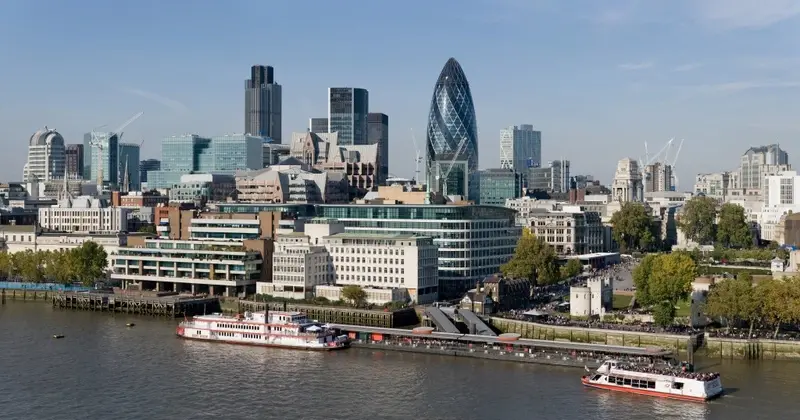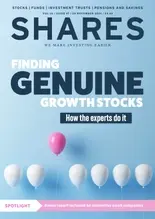
Markets closed lower in London on Thursday as analysts warned the UK budget set out by Chancellor Rachel Reeves on Wednesday may have ‘materially changed the inflationary path,’ making a Bank of England rate cut unlikely.
The FTSE 100 index closed down 49.53 points, or 0.6%, at 8,110.10. The FTSE 250 ended down 305.16 points, or 1.5%, at 20,388.96, and the AIM All-Share closed down 1.0%, or 7.42 points, at 737.10.
The Cboe UK 100 ended down 0.6% at 813.47, the Cboe UK 250 closed down 1.7% at 17,963.17, and the Cboe Small Companies ended down 1.3% at 16,421.81.
‘Previously market expectations were for the base rate to fall to 4.5% by the end of this year, and then to under 4% by the middle of 2025. But the inflationary nature of the measures announced in the Budget are forecast by the OBR to add 0.4% to CPI inflation in the next tax year, thereby putting pressure on the Bank of England to keep rates at higher levels for longer,’ said AJ Bell’s Laith Khalaf.
‘Although rate expectations have been scaled back, the forthcoming interest rate decision feels like it might be a banana skin, where markets take a tumble. Expectations of rate cuts were previously heightened by some dovish rhetoric from Andrew Bailey, and a benign inflation reading for September, with CPI coming in under the Bank of England’s 2% target for the first time in three years. That was just one month’s reading, and reflected life before October’s rise in the energy price cap. We’ve also had the Budget which looks to have materially changed the inflationary path and may well make the Bank’s rate-setters sit on their hands for the time being.’
UK Chancellor Rachel Reeves has said she does not want to repeat the £40 billion tax rises she implemented in her first budget ‘ever again’.
The fiscal announcement was a chance to ‘wipe the slate clean’ following the Conservatives’ time in power, the Chancellor told broadcasters as she defended the Budget on Thursday morning.
Choices made by Reeves will see the overall tax burden reach a record 38.3% of gross domestic product in 2027-28, the highest since 1948.
The post-budget reaction saw UK bond yields higher. The yield on the 10-year gilt spiked above 4.40% on Thursday.
In European equities on Thursday, the CAC 40 in Paris ended down 1.2%, while the DAX 40 in Frankfurt ended down 1.0%.
Consumer price inflation accelerated in the eurozone amid higher food prices in October, while the rate of unemployment remained unchanged in September, preliminary data published by Eurostat showed Thursday.
The harmonised consumer price index rose 2.0% on-year in October, according to the flash estimate, accelerating from 1.7% in September, which in turn had been a deceleration from 2.2% in August. October’s inflation rate was higher than the FXStreet-cited market consensus of 1.9%.
Meanwhile, seasonally-adjusted unemployment rate was 6.3% in the eurozone for September, unchanged from August, and downwardly revised from 6.4% reported in early October.
The pound was quoted at $1.2870 at the London equities close on Thursday, compared to $1.3006 at the close on Wednesday.
The euro stood at $1.0859 at the European equities close on Thursday, against $1.0863 at the same time on Wednesday. Against the yen, the dollar was trading at JP¥152.45, down compared to JP¥153.03 late Wednesday.
In London, Evoke continued its surge, with the 888 owner adding 3.8% to its rally, after a 12% jump on Wednesday. The gambling sector was spared from a feared tax raid in the budget.
Also on the up in London, Coca-Cola HBC rose 2.0% and Shell added 3.5%, as earnings from the duo were well-received.
Soft drink bottler HBC upped its outlook. Oil major Shell announced a new $3.5 billion buyback, but reported an earnings fall on dwindling refining margins.
Anglo American rose 0.6% after BHP suggested it may not have ‘moved on’ from an M&A saga after all.
BHP clarified comments made by its chair at the miner’s annual general meeting, suggesting they should not be interpreted as a sign that the firm no long intends to make an offer for smaller peer Anglo American.
Chair Ken MacKenzie said at the miner’s annual general meeting in Brisbane on Wednesday that BHP believed the two companies could have created ‘something unique and special’. He described a BHP-Anglo tie-up as a ‘one plus one equals three opportunity’.
‘Unfortunately, Anglo American shareholders had a different view, and they thought there was more value in the plan that their management wanted to execute. And so they moved on. And quite frankly, so have we,’ MacKenzie added.
BHP explained on Thursday: ‘The UK Takeover Panel Executive has confirmed that the comments made will not be treated as a statement of intention not to make an offer in respect of Anglo American.’
BHP’s pursuit of Anglo American was rebuffed in May. UK takeover rules mean BHP is now unable to make another approach for Anglo American until late-November. That would be six months after it said in May that it did not intend to make a firm offer for Anglo.
BHP shares were down 1.1%.
Smith & Nephew tumbled 13% as it cut its outlook amid China woes. The medical devices maker said its third-quarter performance was ‘held back by China, where we have seen a period of reduced end-customer demand’.
The group cut its forecast for full-year underlying revenue growth to around 4.5%, from a previous range of 5.0% to 6.0%.
Stocks in New York were lower at the London equities close, with the DJIA down 0.6%, the S&P 500 index down 1.4%, and the Nasdaq Composite down 2.2%.
A key US inflation gauge did not soften as expected, numbers on Thursday showed.
According to the Census Bureau, the core personal consumption expenditures index rose 2.7% on-year rise in September, in line with the pace of growth in August.
The reading was hotter than the FXStreet cited consensus. It had been expected to fade to 2.6%. The core PCE is the Federal Reserve’s preferred inflation gauge.
The headline PCE index, which unlike the core data factors in food and energy, showed the pace of annual inflation eased to 2.1% last month, from 2.2% in August, in line with consensus.
Separately, numbers showed initial jobless claims declined in the recent week, and were below expectations.
Initial jobless claims in the week to October 26 amounted to 216,000, fading from the prior week’s level of 228,000. The previous reading was upwardly revised from 228.000.
The current reading had been expected to show a pick-up in claims to 230,000.
Brent oil was quoted at $72.67 a barrel at the London equities close on Thursday, up from $72.17 late Wednesday.
The oil market extended gains following an unexpected decline in US crude oil stocks.
Official US crude oil inventories fell by 520,000 barrels for the week that ended October 25 to 420.6 million barrels, the US Energy Information Administration reported on Thursday.
Gold was quoted at $2,742.90 an ounce at the London equities close on Thursday against $2,786.80 at the close on Wednesday.
The yellow metal retreated on Thursday, after flirting with a record high earlier in the day, as investors scrambled to hedge potential risks linked to the upcoming US election.
Safe-haven demand for gold remains strong, with investors seeking refuge from the uncertainty surrounding the outcome of the US presidential race, ActivTrades analyst Ricardo Evangelista said. American will vote on Tuesday next week.
‘Persistent doubts over who will emerge as the winner continue to impact financial markets, decreasing risk appetite and leading to losses in equities while supporting assets like gold,’ Evangelista said.
Investors are waiting for US core personal consumption index, the US Federal Reserve’s preferred gauge, and the US non-farm payrolls. Both these economic reports are due out on Friday and could influence US interest rate decision.
In Friday’s UK corporate calendar, there are no events scheduled.
The economic calendar for Friday has a number of manufacturing PMIs, including from China, the UK, and the US.
Copyright 2024 Alliance News Ltd. All Rights Reserved.




